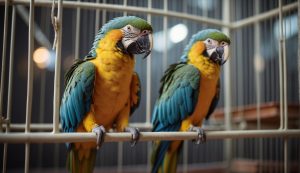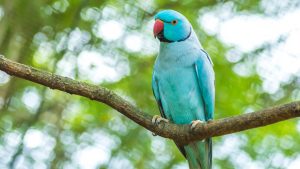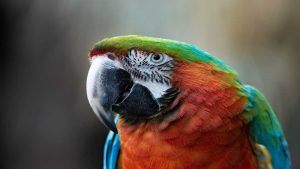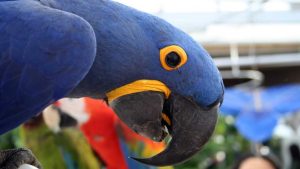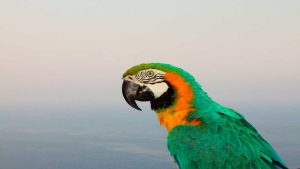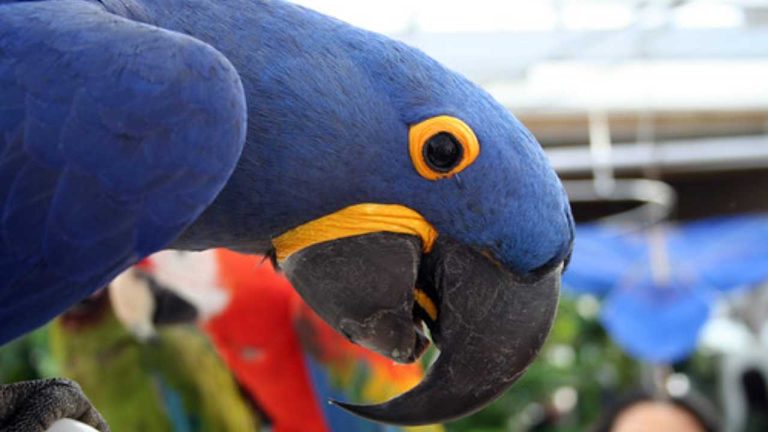Can Quaker Parrots Purr? Exploring the Vocal Abilities of These Popular Birds
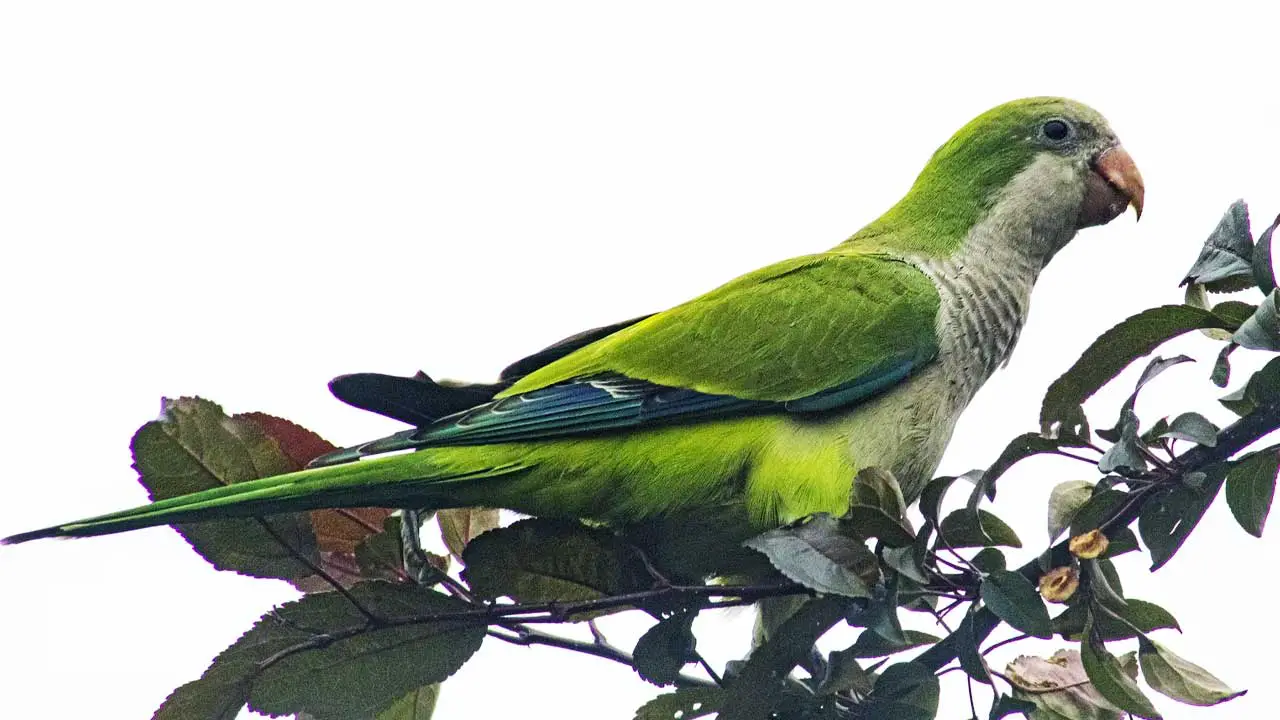
Quaker parrots are known for their intelligence, social nature, and ability to mimic sounds. As a parrot owner, you may have noticed that your quaker parrot makes a variety of noises, including chirping, squawking, and even mimicking human speech.
But have you ever wondered if quaker parrots can purr like cats?
The Short Answer
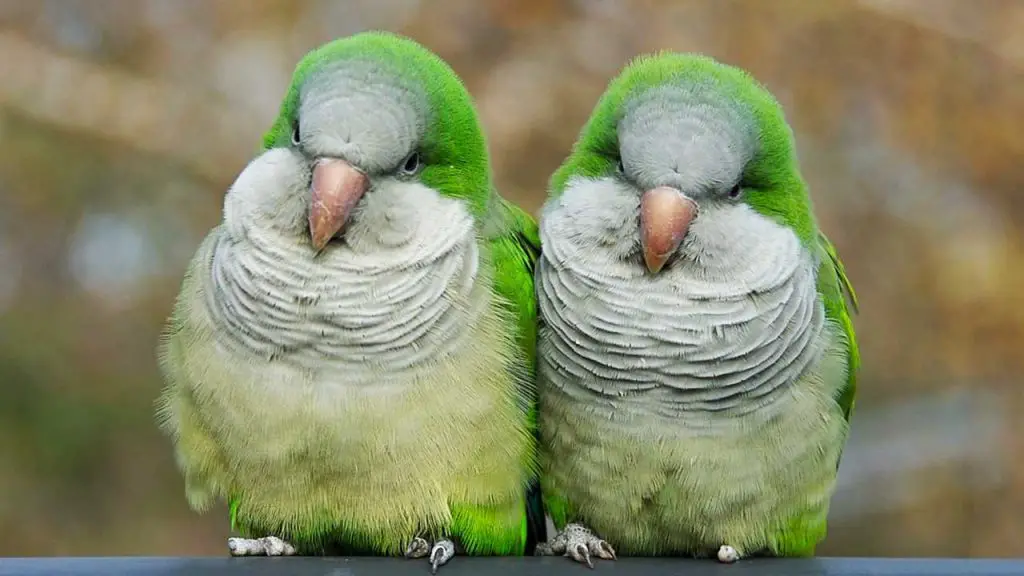
The short answer is yes, quaker parrots can purr, but it is not the same as a cat’s purr. When a quaker parrot purrs, it is a low, rumbling sound that comes from deep within their throats.
It is often accompanied by a soft, contented body language, such as fluffing up their feathers and closing their eyes.
Purring is a sign of relaxation and contentment in quaker parrots, and it is usually heard when they are being petted or cuddled by their owners.
Table of Contents
Can Quaker Parrots Purr?
Do Quaker Parrots Purr?
Yes, Quaker Parrots can purr, but they do not purr in the same way that cats do. While cats produce a rumbling sound when they purr, Quaker Parrots make a soft, vibrating sound that can be mistaken for a growl or a low chatter. Purring is a sign of contentment and relaxation in Quaker Parrots, and they may also purr when they are snuggled up with their owners.
Why Do Quaker Parrots Purr?
Quaker Parrots purr for various reasons. They may purr when they are feeling content and comfortable, or when they are seeking attention from their owners. Purring can also be a sign of stress, discomfort, or annoyance. It is essential to pay attention to your Quaker Parrot’s body language and vocalizations to understand their behavior and needs.
Quaker Parrots are social birds and thrive on attention and interaction with their owners. They are also known for their mimicry abilities, and they can learn to imitate various sounds, including purring, growling, and other noises. Quaker Parrots are also talkers and can learn to talk and sing with a varied vocabulary.
Health and Care Needs of Quaker Parrots
Quaker Parrots are comical and charming pets, but they require specific care and attention to maintain their health and well-being. They need a spacious enclosure with plenty of toys, perches, and climbing structures to keep them entertained and active. Quaker Parrots also need a varied diet that includes fruits, nuts, and vegetables, and they should avoid fattening nuts, peanuts, and sunflower seeds.
Quaker Parrots are illegal to own in some states in the US, including California, Hawaii, Kentucky, Pennsylvania, Tennessee, and Wyoming. It is essential to check the legal status of Quaker Parrots in your state before adopting one.
Understanding Quaker Parrots
If you are considering getting a Quaker parrot as a pet, it’s important to understand their physical characteristics, personality and behavior, and vocalizations.
Physical Characteristics
Quaker parrots, also known as monk parakeets, are a species of bird in the parrot family. Their scientific name is Myiopsitta monachus. They are typically gray in color, with a distinctive quaking or shaking motion when they are excited or nervous. Quaker parrots have a nest-building instinct, which means they love to chew and shred things. They have strong beaks and claws, which they use to climb and play.
Personality and Behavior
Quaker parrots are known for their comical personalities. They are talkers and clowns, and make great companions. They love to be around people and other pets. Quaker parrots are also known for their charming and affectionate personalities. They love to cuddle and kiss, and show contentment by preening. However, they can become angry and aggressive if they feel threatened or stressed.
Vocalizations
Quaker parrots are very vocal birds. They have a wide range of vocalizations, from chirping to screaming and shrieking. They are also known for their ability to mimic human speech and laughter. Quaker parrots use their vocalizations to communicate with their flock and to express their emotions.
To keep your Quaker parrot happy and healthy, it’s important to provide them with a varied diet that includes fruits, nuts, and other foods. Avoid feeding them fattening nuts like peanuts and sunflower seeds. Quaker parrots also need plenty of exercise and mental stimulation, so provide them with toys and opportunities to play outside of their enclosure.

Quaker parrots make great pets for those who are willing to invest time and effort into their care.
With their comical personalities, affectionate nature, and wide range of vocalizations, they are sure to bring joy and entertainment to any household.
Quaker parrots make great pets for those who are willing to invest time and effort into their care. With their comical personalities, affectionate nature, and wide range of vocalizations, they are sure to bring joy and entertainment to any household.
Quaker Parrot Care
If you are considering getting a Quaker parrot as a pet, it is important to understand their care needs. Proper care will ensure that your bird stays healthy and happy. In this section, we will discuss some of the essential aspects of Quaker parrot care.
Feeding
Feeding your Quaker parrot a varied diet is essential for their health. A diet consisting of fruits, vegetables, and nuts is ideal. Avoid feeding your bird too many fattening nuts such as peanuts and sunflower seeds as they can cause your bird to become overweight.
Quaker parrots have a relatively high metabolism, so they need to eat frequently throughout the day. Ensure that they have access to fresh food and water at all times. You can also provide your bird with a commercial bird feed mix, but this should not be the only source of food.
Enclosure and Environment
Quaker parrots are social birds and require a lot of attention and interaction. They also need a spacious enclosure that is at least 18 inches wide, 18 inches deep, and 24 inches tall. The enclosure should have plenty of toys and perches to keep your bird entertained and active.
Quaker parrots are sensitive to temperature changes, so ensure that their enclosure is in a warm and draft-free area. Also, ensure that their enclosure is cleaned regularly to prevent the buildup of bacteria and other harmful toxins.
Health and Wellness
Quaker parrots are generally healthy birds, but they can develop health problems if they are not cared for properly. Regular veterinary checkups are essential to ensure that your bird is healthy. Signs of illness in Quaker parrots include lethargy, lack of appetite, and abnormal droppings.
Quaker parrots have a unique personality and temperament, and they can be quite vocal. They can also be territorial and aggressive towards other pets, so it is important to supervise them when they are interacting with other pets.
In conclusion, caring for a Quaker parrot requires a lot of attention and effort. Providing them with a varied diet, a spacious enclosure, and regular veterinary checkups will ensure that they stay healthy and happy. With proper care, your Quaker parrot will be a delightful and loving companion for many years to come.
Legal Considerations
When it comes to owning a Quaker parrot, there are several legal considerations that you should be aware of. In some countries, including Argentina, it is illegal to own a Quaker parrot as they are considered an invasive species. Therefore, it is important to check your local laws and regulations before purchasing a Quaker parrot.
In the United States, Quaker parrots are legal to own in most states. However, some states may have specific regulations regarding their ownership, such as requiring a permit or prohibiting them from being kept as pets. It is important to research the laws in your state and obtain any necessary permits before bringing a Quaker parrot into your home.
Additionally, it is important to note that Quaker parrots are protected under the Wild Bird Conservation Act, which makes it illegal to import or export them without a permit. This means that if you are considering purchasing a Quaker parrot from overseas, you will need to obtain the proper permits and follow all regulations set forth by the U.S. Fish and Wildlife Service.
It is also important to consider the ethical implications of owning a Quaker parrot. While they can make wonderful pets, they are highly social animals that require a lot of attention and stimulation. It is important to provide them with a large cage, plenty of toys, and regular interaction to ensure their well-being.
In summary, owning a Quaker parrot comes with legal and ethical considerations that should not be taken lightly. Make sure to research your local laws and regulations, obtain any necessary permits, and provide your bird with the care and attention it deserves.

